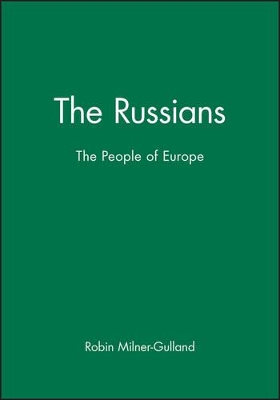The Peoples of Europe
1 total work
The Russians - still one of the most numerous and powerful peoples on earth - have undergone an historical development whose direction and destiny continues to fascinate after more than 1100 years. This book represents an exploration of the ancient roots and subsequent transformations of their cultural history. By concentrating in the first instance on the seven hundred years up to Russia's "Westernization" in the eighteenth century, the book follows several important social, cultural and artistic themes through to modern times. Thus pre-modern and folk-based cultural patterns are shown to have had an afterlife that has contributed essential components to the configuration of modern Russian culture, even in its ostensibly sophisticated and "Europeanized" manifestations.Landscape and geographical constants are seen to have played a large part in determining both the material and imaginative culture of Rus (as Old Russia was known). This is the main subject of the book's first chapter, together with an account of the traditional Russian way of life. Thereafter the socio-political development and the belief-systems of Rus/Russia are discussed and related to historical events.
The two final chapters treat, respectively, the role of language and literature in Russian consciousness, and the "iconic world" as manifested in various aspects of Russia's visual and oral culture. "The Russians" provides a wide-ranging and original exploration of the Russian cultural experience. An underlying theme is that of the meaning of "Russianness" at both a collective and personal level. The book thus contributes, too, to our understanding of controversial matters of ethnicity and historical identity for this hugely influential, if often unstable, nation.
The two final chapters treat, respectively, the role of language and literature in Russian consciousness, and the "iconic world" as manifested in various aspects of Russia's visual and oral culture. "The Russians" provides a wide-ranging and original exploration of the Russian cultural experience. An underlying theme is that of the meaning of "Russianness" at both a collective and personal level. The book thus contributes, too, to our understanding of controversial matters of ethnicity and historical identity for this hugely influential, if often unstable, nation.
